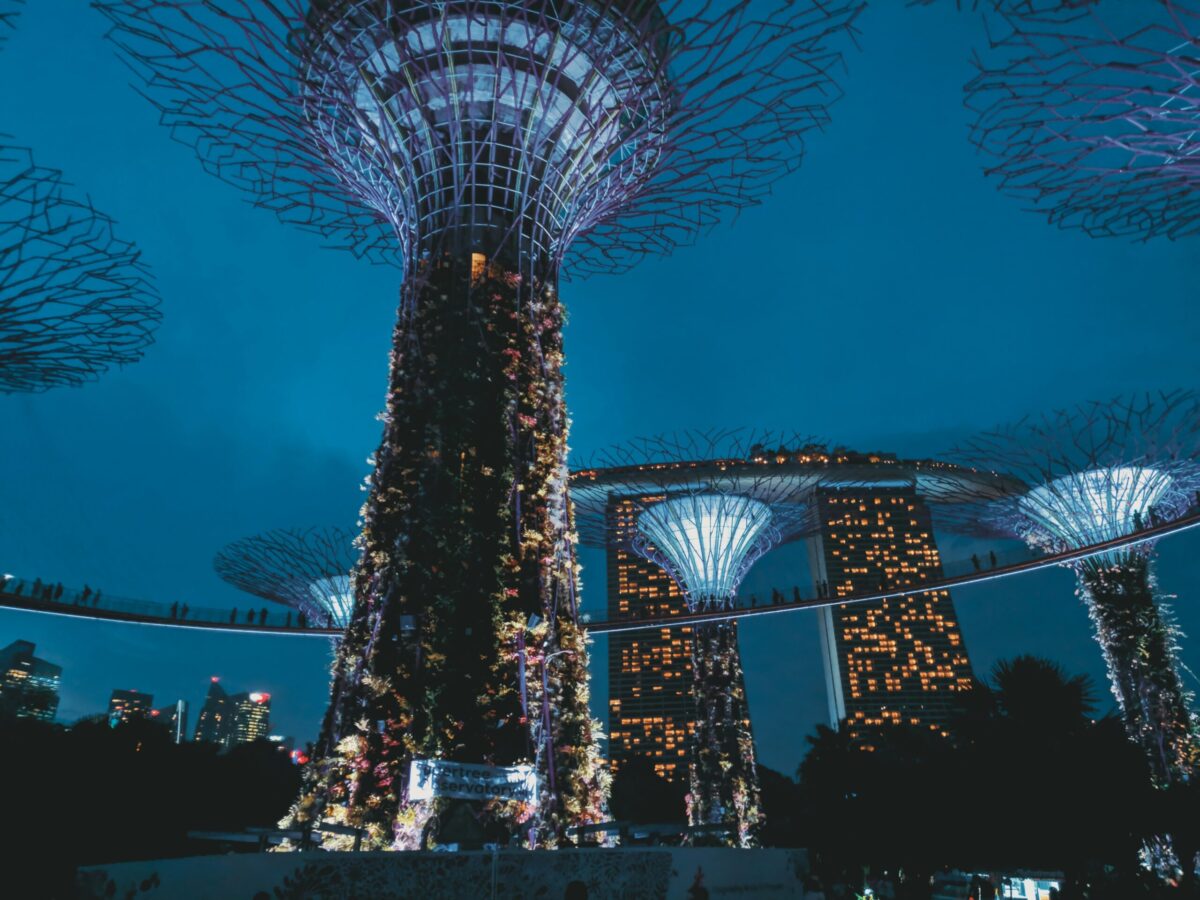In recent years, Singapore has become a beacon of sustainability in Southeast Asia, with its government, businesses, and tech communities aligning toward a greener future. At the heart of this transformation is a growing ecosystem of startups that blend artificial intelligence (AI) and sustainability, leveraging data to make eco-efficiency not just a goal but a practical, measurable outcome. These innovative ventures are reimagining how businesses operate, reduce waste, cut emissions, and make better environmental decisions in real time. In this emerging landscape, sustainability solution companies in Singapore are not just reacting to climate challenges—they are using AI to lead the change.
The Intersection of AI and Sustainability
Artificial intelligence has evolved from being a futuristic technology to a real-world driver of change across industries. When applied to sustainability, AI unlocks unprecedented insights from data—allowing businesses to forecast energy use, optimize logistics, monitor emissions, manage resources, and make real-time adjustments to minimize environmental impact.
Singapore’s strategic investment in digital infrastructure, strong regulatory frameworks, and commitment to becoming a “Smart Nation” has made it an ideal environment for startups that blend AI with sustainability goals. As climate urgency grows, companies no longer just report their carbon footprint—they are expected to act on it. That’s where AI steps in, and Singaporean startups are stepping up.
Pioneering Startups Leading the Way
Several forward-thinking sustainability solution companies in Singapore are already proving the value of AI in eco-efficiency:
1. SensorFlow
SensorFlow is a smart building startup that combines IoT and AI to optimize energy usage in hotels and commercial spaces. Using real-time data collected from wireless sensors, SensorFlow’s AI system automates HVAC (heating, ventilation, and air conditioning) operations. This reduces unnecessary energy consumption and carbon emissions, often achieving up to 30% in energy savings for clients. In the hospitality industry—known for high energy use—SensorFlow’s solution is a game changer.
2. Envision Digital
A global AIoT (AI + IoT) powerhouse headquartered in Singapore, Envision Digital has developed EnOSTM, an AI-based platform that manages clean energy assets like solar panels, wind turbines, and electric vehicle (EV) infrastructure. It uses machine learning to forecast energy production, track carbon output, and recommend efficiency improvements. Envision works with governments and corporations worldwide, using AI to power Singapore’s smart grid and large-scale renewable energy projects.
3. Climate Alpha
This data-driven platform uses AI to assess the long-term climate risks of real estate and infrastructure. By analyzing climate models, socio-economic data, and geographic trends, Climate Alpha helps investors and businesses make better location-based sustainability decisions. It’s particularly valuable in Singapore, where rising sea levels and climate adaptation are high on the national agenda.
4. BeeX
BeeX builds autonomous underwater vehicles (AUVs) to inspect marine and offshore infrastructure. Using AI-powered navigation and data processing, these AUVs help reduce the carbon footprint associated with traditional manual inspections, which typically require fuel-intensive vessels. BeeX’s AI tools also monitor marine health, helping offshore companies and coastal developments stay aligned with environmental regulations.
How AI Drives Eco-Efficiency in Business Operations
AI-powered sustainability doesn’t stop at startups. Enterprises across Singapore are integrating AI solutions from local vendors to meet their ESG (Environmental, Social, and Governance) goals and operational efficiency targets.
1. Energy Optimization
AI algorithms can analyze historical energy usage data to detect inefficiencies and suggest improvements. Smart meters and AI dashboards now provide insights that help facilities managers reduce peak load demands, cut energy costs, and track carbon savings. For instance, manufacturing companies in Singapore are using AI to monitor and reduce energy consumption on production lines without affecting output quality.
2. Waste Management and Recycling
AI is making waste sorting and recycling more efficient. Machine learning models can now identify recyclable materials using computer vision, improving the speed and accuracy of waste management. This not only helps with regulatory compliance but also reduces landfill use and lowers disposal costs.
3. Supply Chain Transparency
AI enhances supply chain visibility by tracking material sourcing, transportation emissions, and supplier sustainability scores. Singaporean startups are providing AI-powered tools that calculate the carbon footprint across supply chains, enabling companies to switch to greener logistics and materials suppliers.
4. Predictive Maintenance
Through AI-driven predictive analytics, businesses can maintain equipment before breakdowns occur—reducing downtime, conserving resources, and extending the life of machinery. This reduces the need for frequent replacements and cuts down on production-related waste.
Supportive Ecosystem in Singapore
What sets Singapore apart is the holistic ecosystem it has created for these sustainability-focused AI startups. The government actively supports green innovation through grants like the SG Eco Fund and the Enterprise Sustainability Programme. Public-private partnerships, such as those between the National Research Foundation and local universities, provide R&D support to emerging technologies in AI and sustainability.
The city-state’s urban infrastructure also acts as a living lab. With its Smart Nation initiative, Singapore offers a real-world testing ground for AI tools aimed at urban sustainability, from smart mobility solutions to energy-efficient building systems. Local sustainability solution companies in Singapore benefit from this open innovation culture, piloting technologies in collaboration with city planners, utilities, and corporations.
Challenges Still Remain
Despite the progress, integrating AI into sustainability efforts isn’t without its challenges. Data privacy regulations, system integration with legacy infrastructure, and the need for skilled AI professionals can be hurdles for small startups. Additionally, convincing traditional businesses to invest in AI tools for long-term sustainability—rather than short-term ROI—still requires education and awareness.
However, the outlook is promising. As more global investors prioritize ESG standards, companies in Singapore are finding that sustainability isn’t just good for the planet—it’s good for business too.
The Road Ahead
Singapore’s ambition to become a hub for green innovation in Asia is already paying off. As AI continues to evolve, we can expect smarter climate modeling, better carbon tracking, and real-time ESG reporting to become standard business practices.
Startups like SensorFlow, Envision Digital, and BeeX are just the beginning. With government backing, a tech-savvy workforce, and rising global demand for sustainable business practices, sustainability solution companies in Singapore are poised to lead the region—and perhaps the world—in using AI to achieve net-zero goals.

